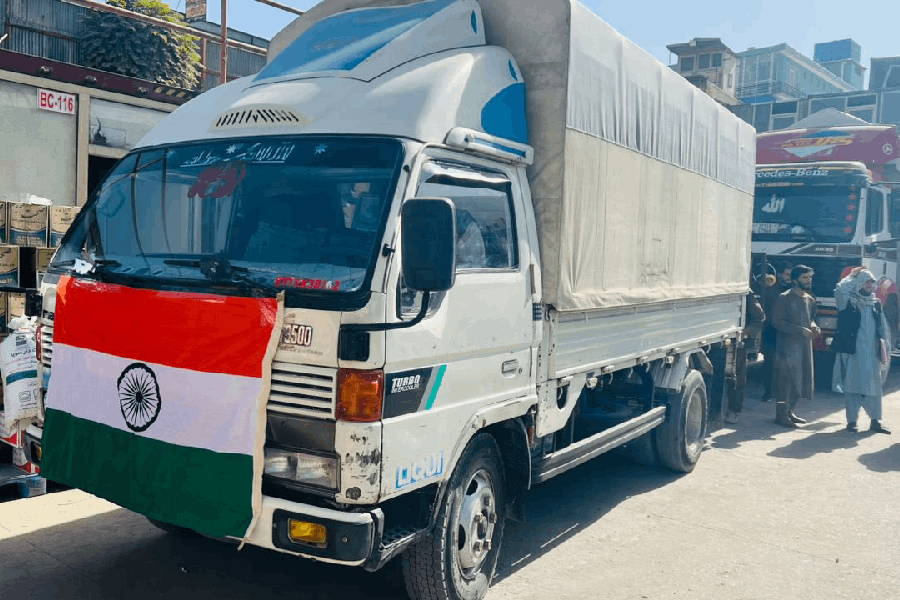India is ramping up aid to Taliban-ruled Afghanistan and branding itself as the region's "first responder" after Monday's deadly earthquake, seeking to counter China's efforts to fill the void left by the West, officials and analysts said.
Indian Foreign Minister Subrahmanyam Jaishankar was among the first to call his Taliban counterpart Amir Khan Muttaqi on Monday, pledging more support after New Delhi shipped 15 tons of food. Medical supplies would follow soon, he said, as his ministry promoted the hashtag #IndiaFirstResponder on X.
China on Tuesday said it too was ready to assist after the quake near Mazar-i-Sharif killed at least 20 people and injured more than 900.
Both Asian giants are keen to deepen engagement with the Taliban, said Harsh Pant, head of foreign policy studies at the Observer Research Foundation think tank in New Delhi. India's ties with Afghanistan have warmed in recent weeks, even as relations between both countries and Pakistan have soured.
India wields soft power
"Behind India's outreach to Afghanistan is the idea to create a certain resonance and goodwill among the local population as a form of soft power," Pant said. "It's unlikely India can fill the gap left by Western nations, but if it does not make an effort then China will."
India hosted Muttaqi last month for six days and announced plans to reopen its embassy in Kabul, shut since 2021. It also pledged cooperation on hydroelectric projects and support for healthcare and public infrastructure.
"The reopening of the Indian embassy sends a political signal, short of India's recognition of the Taliban, of a stronger Indian presence on the ground," an Indian official said, adding that more aid would follow.
Muttaqi's visit coincided with worsening Taliban-Pakistan relations after border clashes. Last week, India secured a six-month U.S. sanctions waiver to operate Iran's Chabahar port, boosting trade with Afghanistan and reducing Kabul's reliance on Pakistan's Karachi port.
Beijing eyes mining opportunities
China, which maintains close ties with Pakistan, told Afghanistan in August it was keen to explore mining and mineral opportunities and urged Kabul to formally join its Belt and Road Initiative.
Chinese and Indian support is crucial for the Taliban, which seized power after U.S.-led NATO forces withdrew in 2021 but remains shunned by Western nations over restrictions on women and U.N. sanctions.
"Afghanistan's isolation from the international banking system and the absence of normal coordination channels have made it far harder for aid and development funds to move," said Ibraheem Bahiss of the International Crisis Group.
"Afghanistan's humanitarian needs are not reducing - if anything, they're rising because the population keeps growing while economic growth remains stagnant."












